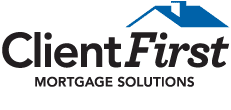Debt consolidation by using your home equity.

Home Equity for debt consolidation
Home equity is the difference between what you owe on your home and your home’s market value.
Rising debt-servicing costs are expected to continue to squeeze Canadian’s wallets for the foreseeable future. And even if the Bank of Canada keeps interest rates on hold for the rest of the year (which are not expected), the amount that Canadians will have to spend on debt repayment, will likely continue to increase as homeowners renew fixed-rate mortgages at higher interest rates.
Debt Consolidation Explained: Debt consolidation is simply the process of combining two or more debts into a single larger debt. Taking the step of debt consolidation is a solution often used by consumers who are burdened with a significant amount of high-interest debt (like a credit card with their high interest rates).
There are a few options that can be used to overcome debt:
Your home equity increases as you pay off your mortgage and as your home value goes up. There are three different types of home equity loans in Canada that are available:
- Home Equity Line of Credit (HELOC)
- A second mortgage
- A reverse mortgage
Home Equity Line of Credit
A HELOC, is a revolving Line of Credit that is secured by your home. It allows you to pay it off in full and then re-access funds without having to apply for new credit from your lender. On a Home Equity Line of Credit, you can get a maximum of 65% or your home’s appraised value. The more equity you have in your home, the more money you can borrow. Costs that are associated to applying for a HELOC are appraisals, Title Searches, Title Insurance and Legal Fees. Read more..
Second Mortgage: A home equity loan can be considered a second mortgage, if the home equity loan is in second position. The amount you can borrow will depend on the amount of your home’s equity.
- It can help to reduce interest payments if you have a lot of credit card and other high interest debt.
- It can be the only way to pay urgent bills such as property taxes etc.
Reverse Mortgage: If you are a homeowner in Canada and are 55 years or older, you may qualify for a reverse mortgage. One of the most attractive benefits of a reverse mortgage, is that you don’t have to make regular payments. You don’t need to pay off the loan until you sell. With a reverse mortgage the bank makes monthly payments or a lump-sum payment to you. The amount you qualify for depends on the value and equity of your home, your age, amount of secured debt and property type/location. Read more..
We can show you several different options so that you can select the optimal product for your specific needs. Working with a broker means you have someone on your side – always!


